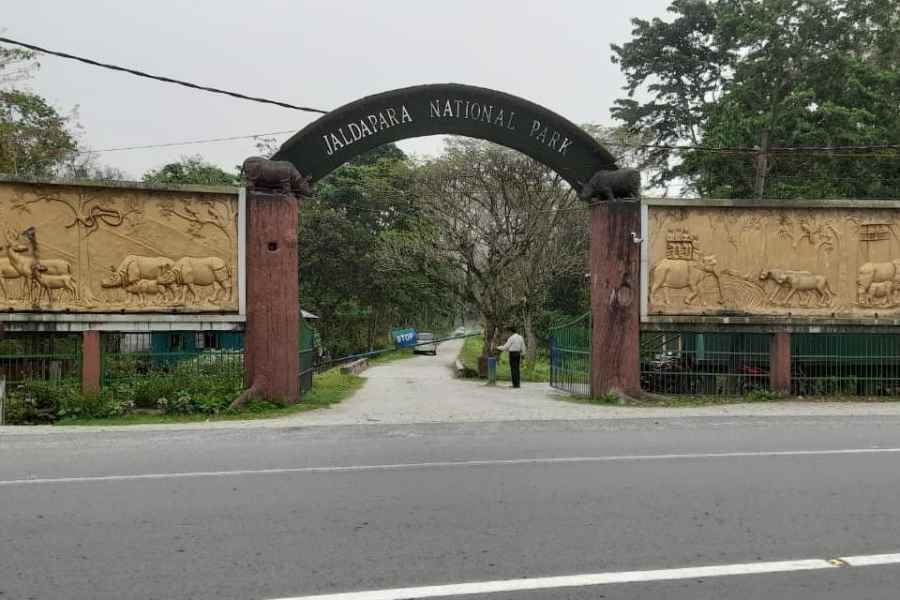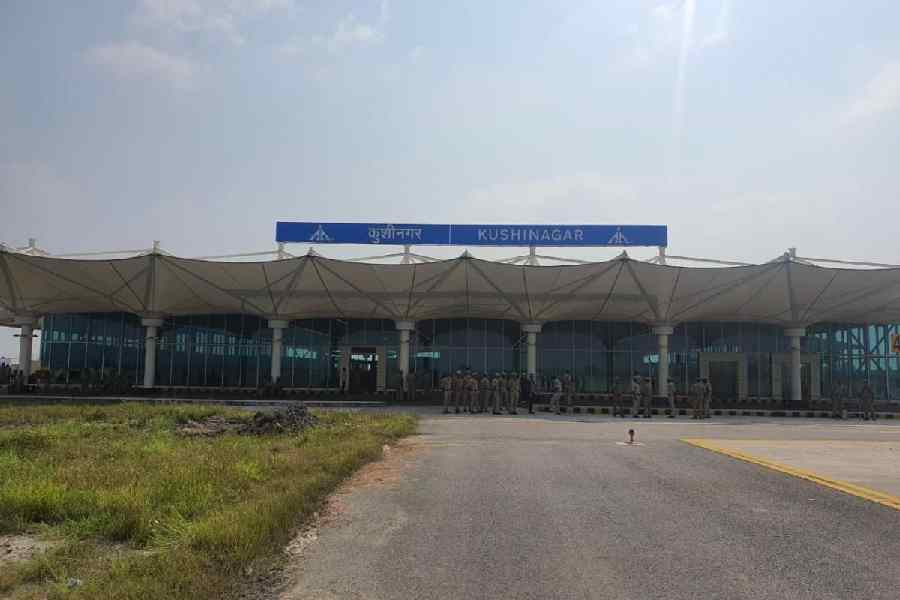A large-scale fodder plantation drive in Jaldapara National Park in Alipurduar district is proving to be a boon for both wildlife and local communities.
Forest department officers introduced 12 varieties of grass across 700 acres this year, four times higher than previous years, to provide adequate fodder to herbivores such as elephants, rhinos, gaurs, barking deer, spotted deer and sambars.
The project has generated over 1.05 lakh mandays of work, with the bulk of employment going to women from villages surrounding the park. Residents of the eight surrounding gram panchayats earned a steady income for the first time.
“We are planting different types of grass in Jaldapara. We are thankful to the forest department officers and the government for this opportunity to earn money. We are quite happy now,” said Roshna Roy, a villager.
The daily wage is around ₹320.
The plantation drive was launched in January 2025 following chief minister Mamata Banerjee’s directive last year to foresters to expand fodder resources in protected areas.
Mamata had expressed concern over frequent incidents of wild herbivores straying into farmlands in north Bengal, causing extensive crop loss and sometimes injuring villagers.
By ensuring an abundant food supply within the Jaldapara park, the foresters hope that human-animal conflicts will decrease and rural livelihoods will be protected. Fourteen nurseries have been set up on six range office campuses to raise selected grass varieties, which include dhadda, chepti, malsa, madhua, mechia, nol and bansh, which are preferred by large herbivores.
Assistant wildlife warden Jaldapara Nabikanta Jha highlighted the dual benefit of the scheme:
“We began the project in January, and the plantation is nearly complete. It not only ensures fodder resources for Jaldapara’s herbivores but also generates over one lakh mandays of employment. Both wildlife and villagers are gaining from this initiative.”
Officials also believe the move will have a ripple effect on tourism. With reduced risks of animals straying into human habitats and improved safety for one-horned rhinos, Jaldapara’s appeal to tourists is expected to grow, strengthening the local economy, said an official.











